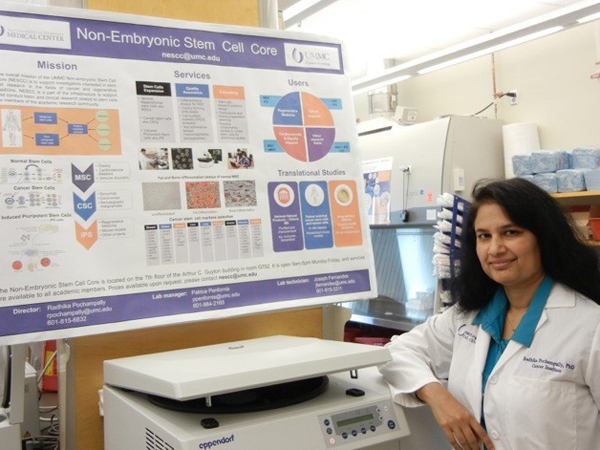|
Chances are, Dr. Scott Rodgers speaks your language. In addition to English, he knows German and French, and has his sights set on Spanish. But, most of all, he speaks the language of the mind. Rodgers, who joined UMMC on Dec. 1, is the new chair of the Department of Psychiatry and Human Behavior, taking over for Dr. Grayson S. Norquist. It’s Rodgers’ “Traumberuf,” his “métier de reve.” His “dream job.” “It gets me back to my roots in psychiatry,” said Rodgers, whose main clinical interest is child and adolescent psychiatry. “It’s a return to my specialty.” A Decatur, Ga., native, Rodgers arrived at the Medical Center from Vanderbilt University, where he served for more than seven years as the associate dean for Medical Student Affairs. He had been filling other roles there as well: associate professor of education and medical administration, and associate professor of psychiatry. He was there for about 15 years. “I thought I would never leave there,” he said, “because I loved it so much.” His road to Nashville began at Duke University, where in 1988 he earned degrees in zoology and German literature. “I love foreign languages,” said Rodgers, who taught himself French. “I also love to travel, and there’s no better way to learn about a culture than through its language.” After Duke, the culture of home called him back to Georgia, where he worked for two years as a sixth-grade science teacher and swim coach at a private prep school in Atlanta. His simmering plans for medical school came to a boil when he won a scholarship to Vanderbilt – his future as a pediatrician assured. Or so he thought. “I shifted to psychiatry, what I saw as the most interesting specialty of all – sitting down and talking with people about what motivates them,” he said. “It is an underappreciated profession, but it can be enormously helpful to people, which I had not realized before medical school. “I became passionate about it; I decided to choose what I love.” That love translated into post-medical school training that included an internship at Massachusetts General Hospital, Harvard Medical School, where he also did his residency in psychiatry, as well as a fellowship in child and adolescent psychiatry. His first job, post-Harvard, was back at his alma mater. There, during the past 10 years, he oversaw a Student Wellness Program that sought to maintain the physical and mental health of highly-stressed medical students, providing them with classes in yoga and healthy cooking, forums on nutrition and sleep, a mentoring program and more. “From that, I realized that I love leading, building programs, raising morale. Now, the opportunity to be chair of a department is just a continuation of that,” he said. As the chair, he is setting a host of goals, not least of which is this: “To see more medical students choose psychiatry and stay here and work in the state. We need to eliminate health disparities in Mississippi, and that includes disparities in the treatment of mental illness.” Rodgers will help treat some of those illnesses himself, particularly those affecting children. “I will be able to see patients,” he said. As an administrator, he’ll oversee about two dozen faculty members, leading them from an office furnished with shelves holding items that suggest his priority as a clinician: toys, teddy bears and other stuffed animals. “There probably aren’t too many chairs who have all that,” he said.
|











